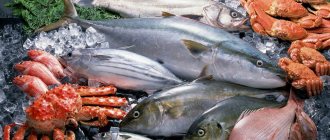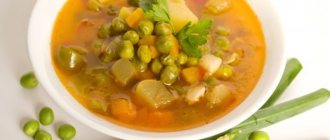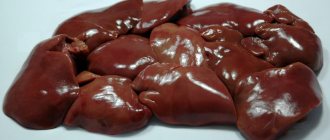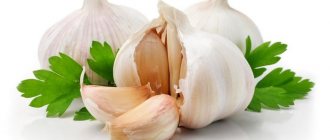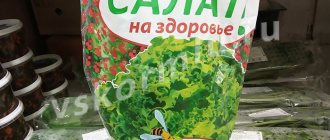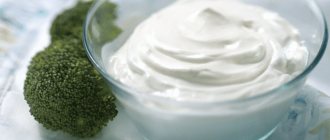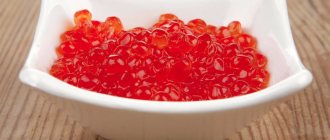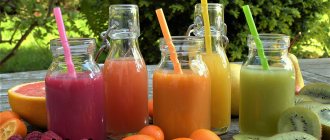To answer the question whether pink salmon can be breastfed, you should consider the beneficial properties of the product and possible contraindications for including this fish in the diet during lactation.
Fish dishes are recommended for nursing mothers, as they are a source of easily digestible protein and essential fatty acids for the body. But not all types of fish can be safely consumed while breastfeeding. In addition, you should be careful when choosing the product itself, since it must be of high quality.
Beneficial features
Red fish, which live in cold waters, contain a large number of useful substances, including:
- B complex of vitamins, as well as vitamins A, E, D;
- fatty acids, which are highly biologically active and have a beneficial effect on the female body recovering after childbirth;
- valuable protein, necessary for both mother and baby;
- a wide range of amino acids, including arginine, lysine, leucine, etc.;
- extractive compounds, which improve the functioning of the child’s digestive system;
- micro- and macroelements important for the health of internal organs and systems, for the good condition of the skin, teeth and hair.

Omega-3 unsaturated fatty acids protect the body from the effects of free radicals and reduce the risk of malignant tumors. Nicotinic acid is necessary for mother and baby to strengthen the nervous system.
Sodium and fluorine improve the functioning of the circulatory system and maintain optimal water metabolism. Iodine is required for the proper functioning of the thyroid gland.
It is worth noting that red fish, to which pink salmon belongs, is a dietary product. It is well absorbed by the body and does not provoke the formation of fatty deposits.
Is it possible to eat tilapia while breastfeeding and what are its benefits?
One of the most common fish in the world is tilapia. It can be found on shelves all over the world, and gourmets value it for its excellent taste and low cost. In recent years, a lot of controversy has flared up around this fish, since some people are sure that eating tilapia is more harmful.
In this regard, a logical question arises: is it worth including such dubious fish in the diet of a nursing mother and is this not fraught with consequences for her health and the health of the baby?
In fact, tilapia itself is not a harmful product, but if the growing conditions for this fish were poor, then it can really cause considerable harm to health.
But we’ll talk about this a little lower, and now we’ll look at the main beneficial properties of this fish.
- The most important feature of tilapia is the highest concentration of protein in its meat; just one serving of fish can fill a fifth of the body’s daily protein needs. This is especially important for nursing mothers and infants, since proteins are necessary for active growth and development, as well as rapid recovery after childbirth.
- Since tilapia is a protein food, the amount of fat and carbohydrates in it is minimal. This means that this type of fish can be used as a dietary product. Many mothers are faced with the problem of excess weight remaining after childbirth, so boiled tilapia will come in handy in such a situation.
- Tilapia meat is rich not only in proteins, but also in such an important element as phosphorus. This mineral is necessary to maintain strong and healthy bone tissue. Since the most intensive growth occurs in the first year of life in an infant, its need for phosphorus is very high.
- Tilapia contains omega-3 fatty acids. These substances are essential acids and are involved in almost all processes occurring in the human body. Omega-3s are especially beneficial for the cardiovascular system. They strengthen the walls of blood vessels, make them more elastic and help the heart work better.
- The presence of the same fatty acids in tilapia makes it an excellent product for maintaining the health of the nervous system and brain. In addition, this fish is rich in potassium, which regulates the movement of fluid in the body, so eating this fish can help get rid of swelling and prevent its formation.
- Tilapia contains selenium, which is known for its antioxidant properties. This compound helps maintain skin and hair in good condition, which is especially important for young mothers, since many women suffer from vitamin deficiencies and deficiencies of many nutrients after childbirth.
- Selenium also helps strengthen the immune system and has a beneficial effect on the thyroid gland. All this helps the body of mother and child to more resistantly resist diseases and strengthens it.
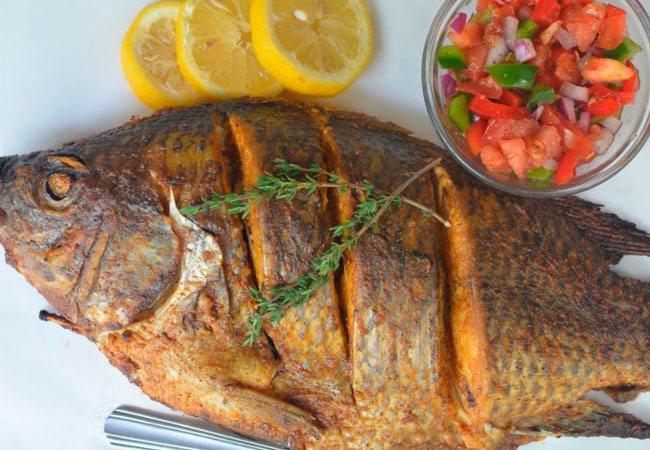
Contraindications
Fish is a strong allergen due to its high protein content, and red varieties of fish are more dangerous in this regard than white ones. Doctors recommend introducing fish dishes into the diet gradually - two to three weeks after giving birth, a nursing mother can gradually begin to eat white fish.
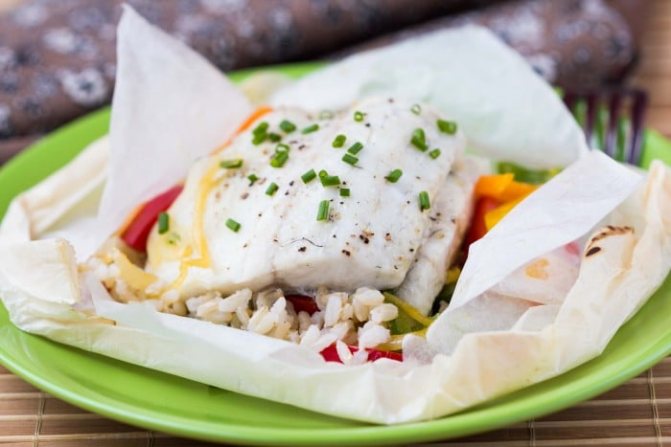
If the baby on breastfeeding does not show an allergic reaction to white varieties of fish, when the child is three to four months old, the mother can add red varieties to the diet.
However, not all red fish are allowed during breastfeeding. During lactation, you should not eat salmon, trout and other species grown in specialized farms, since such a product contains:
- antibiotics (they are used to avoid massive fish diseases in artificial reservoirs);
- chemicals used to disinfect water;
- dyes (with their help, the product is given a marketable appearance).
The permitted red fish option is pink salmon because it is wild caught and not farmed. But even if the child is not allergic to pink salmon, a nursing mother should not include it in the diet too often, since heavy metals accumulate in its tissues, of which there are many in sea water, in areas contaminated with waste.
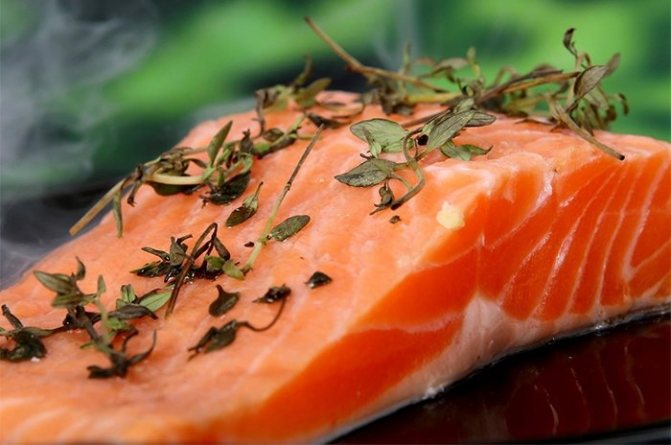
Whether or not to eat dried fish during breastfeeding
Based on the above facts, we can summarize the following: during lactation, dried fish is not a sufficiently useful product.
If our arguments do not seem convincing enough to you, and the benefits of dried fish for you outweigh the harm that it can cause to your body, or you simply cannot deny yourself this pleasure, we advise you to refrain from eating it, at least in the first months of breastfeeding .
In the future, pay special attention to the manufacturer - look for trusted suppliers, opt for a product of decent quality.
Give preference to river fish, white rather than red varieties (red fish are quite risky in terms of allergic reactions in a child) - they contain fewer harmful substances, and therefore the benefits will be greatest. Remember that the most valuable fish for you during lactation is fresh or chilled fish.
How to choose a product
You should only buy deep-frozen pink salmon. This fish is frozen immediately after catching, and if you come across “chilled” pink salmon on sale, most likely it is a thawed product. When re-frozen, the product loses most of its beneficial properties.
Frozen fish should have intact skin, a normal silver color, without yellowness, and an even pink color when cut.
Before cooking, make sure the product is fresh. Thawed pink salmon has good quality:
- the elasticity of the meat is maintained;
- the color of the pulp is pink, not gray or yellowish;
- no rancid or rotten smell.
If the fish has been stored incorrectly or has been re-frozen, a lot of water leaks out of it and it becomes chalky to the touch.
Cooking methods
Some methods of preparing fish can be harmful to a newborn baby.
- Raw.
This fish is used in making sushi and rolls. It is dangerous because it can be infected with worms, which, without heat treatment, remain viable and capable of infecting the mother’s body. Of course, they do not penetrate into the milk, and the baby is not in danger, but during treatment, the mother will feed not only herself, but also her baby with harmful drugs.

- Canned food.
During industrial preparation, potentially dangerous preservatives are added to the product for long-term storage. They can harm a newborn baby. You should not eat this product until lactation ends.
- Smoked, pickled and dried.
Nowadays, preservatives and flavor enhancers are necessarily added to such products. The carcasses themselves are treated with special compounds so that they do not spoil for a long time and have an attractive appearance for the buyer. Therefore, pickled, dried and smoked fish cannot be recommended for nursing mothers.
- Salty fish.
READ ALSO: Can a woman eat liver while breastfeeding?
Many people are interested in the question of whether a nursing mother can eat salted fish, because it is not processed with anything harmful. The answer is no, you can’t. The fact is that when it is salted, the fish meat is completely saturated with salt. Excessive salt consumption affects the functioning of the kidneys not only of the mother, but also of the baby. Therefore, we can definitely say that salted fish will only cause harm during breastfeeding.
- Dried.
Salt is always used for drying, and an excess of it in food leads to undesirable consequences. In addition, fish can affect the taste of milk. There is a possibility that an infant will not want to drink such milk.
Many people prefer fried fish. This way, almost all the beneficial substances leave it, and it becomes absolutely useless for consumption. If you ask whether a nursing mother can have fried fish in the first month of her baby’s life, the answer will be that it’s impossible. Only after 4-5 months is it allowed to fry fish and eat it without fried skin.
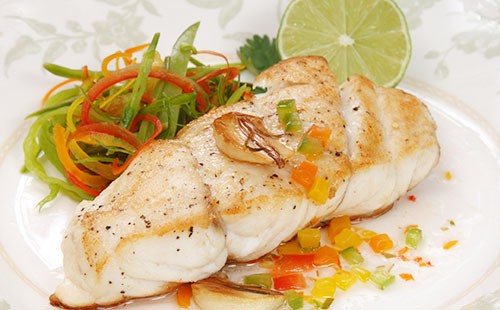
Pink salmon dishes
During lactation, only heat-treated pink salmon is allowed to be included in the menu to avoid poisoning and infection by parasites. Please note: deep freezing kills a significant portion of marine fish parasites that are potentially dangerous to humans.
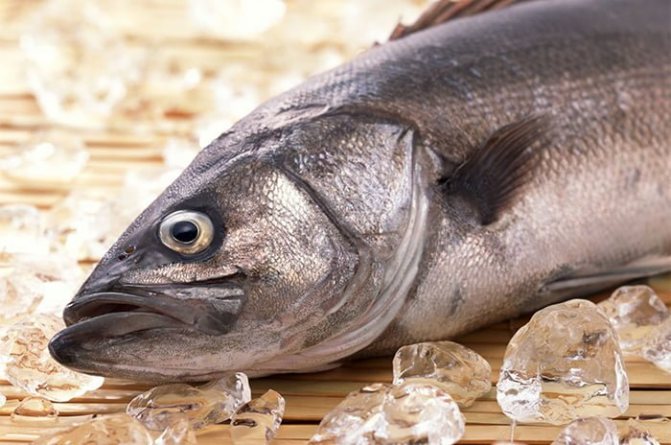
At first, when breastfeeding, you should limit yourself to boiled or steamed pink salmon. After the baby turns six months old, the menu can include fish baked in the oven separately or with vegetables (in foil or sleeve). Closer to the child's year, fried foods are allowed, but only in small quantities.
A nursing mother should avoid salted, smoked, dried fish, as well as canned pink salmon. Excess salt causes fluid retention in the body, which negatively affects lactation. Preservatives and other substances used in processing the product can cause serious harm to the health of the baby.
Red fish recipes for nursing mothers
Only a properly prepared dish can benefit the mother and child’s body. Fish dishes for a nursing mother should be dietary, with a small amount of ingredients.
Fish soup
Ingredients:
- Red fish – 300 g
- Potatoes – 2-3 pcs.
- Rice – 4 tbsp.
- Carrots – 1 pc.
- Celery – 1 piece
- Tomato paste – 2 tbsp.
Method of preparation: Boil seafood in salted water with the addition of bay leaf. Separate meat from bones. Add diced potatoes and rice cereal to the fish broth. After 15 minutes, add carrots and celery sauteed in tomato paste, as well as boiled fish meat. Boil for another 4-5 minutes, add herbs. The soup is ready.

How to introduce pink salmon into your diet
A test portion of fish should be about 30 grams. You should eat it after finishing the baby’s morning feeding, and then monitor his body’s reaction for two days.
If the baby does not develop an allergy, then the portion of pink salmon is gradually increased to 200 g. Please note: during breastfeeding, fish dishes can be included in the menu no more than twice a week! The recommended amount of product is 400 g per week.
Subscribe to our VKontakte group
Steamed seafood
Every mother wants to bring only benefits to her child. Easy to prepare, steamed fish retains maximum beneficial properties, and most importantly, it turns out tender and juicy. You can use any fish that you have already tried during pregnancy.
To prepare you will need:
- fish carcass;
- salt;
- 1 onion;
- parsley.
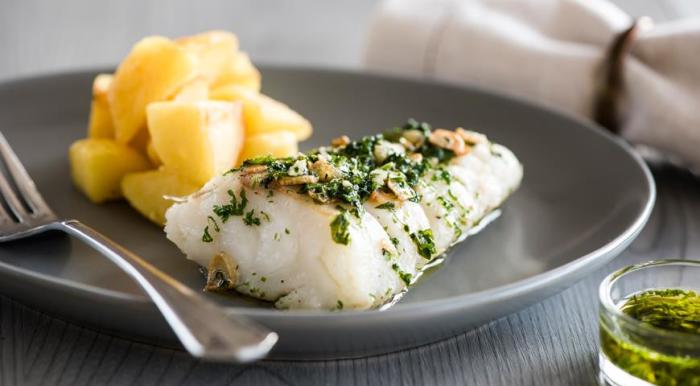
Fill the pan with water halfway. A sieve or colander is placed on top. The fish is placed on top and covered with a lid. The carcass should be above the water, not in it! After boiling, add onion and parsley to the water, salt the fish before putting it in the pan. 20-30 minutes and the fish is ready. It will be easier for the owners of a double boiler.
